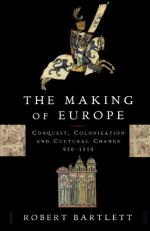|
This section contains 335 words (approx. 2 pages at 300 words per page) |

|
In 1911 and 1912 the French Ministry of Public Education asked teachers throughout the country to reflect on their experiences since the late nineteenth century. The following observations reveal some of the difficulties teachers faced in small, rural villages still tied to their traditional ways.
Rhone. In the eyes of the peasant and the working man the teacher, correctly dressed and decently lodged, is a lady, almost an aristocrat. It should surely be a simple matter to keep children in a brilliantly lighted, well-ventilated room that is heated in winter and kept cool in summer! To have one rest day a week besides Sunday, to have holidays at Christmas and Easter and two long months of liberty in August and September—is not that an enviable existence? So a latent but real jealousy springs up among these workers, who have...
|
This section contains 335 words (approx. 2 pages at 300 words per page) |

|




